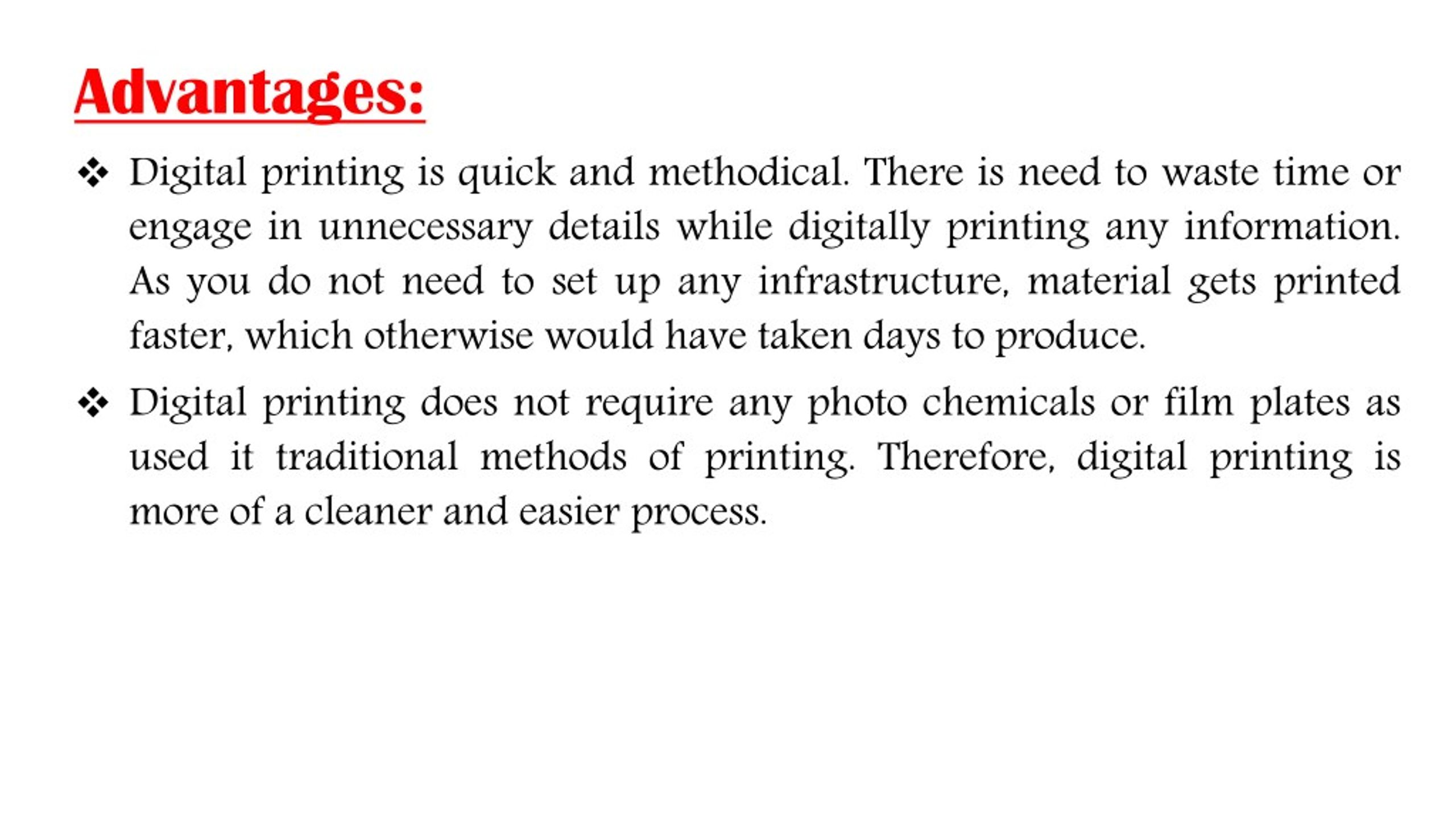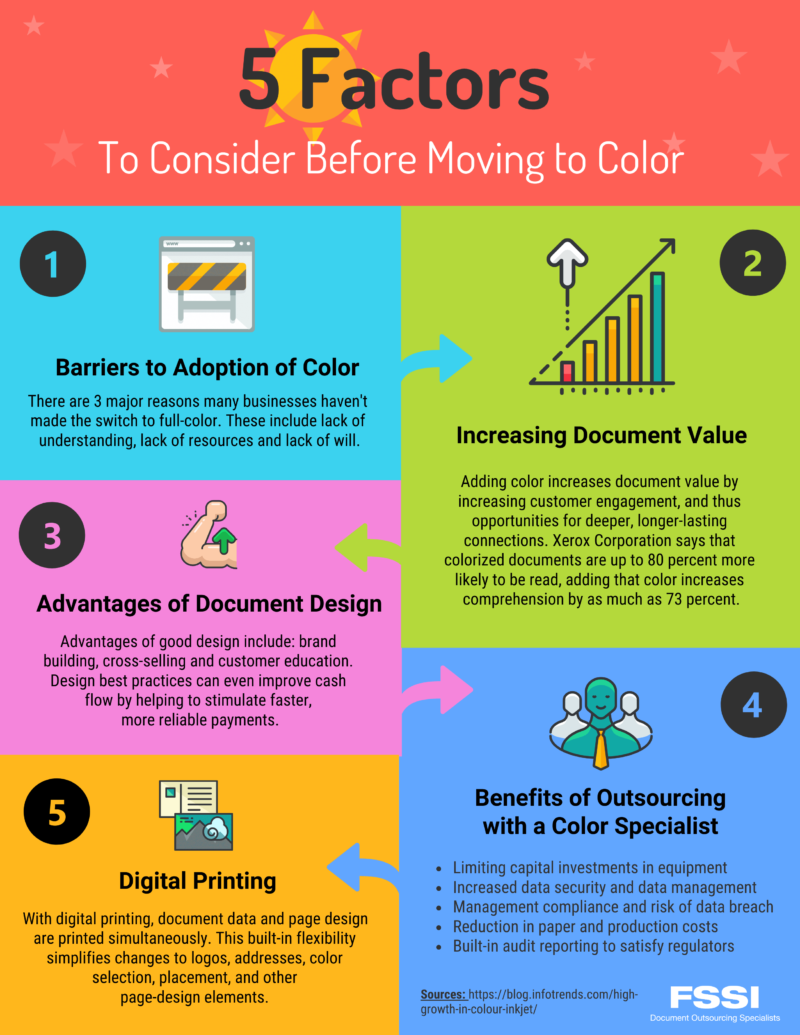An Unbiased View of Digital Printing
Not known Facts About Digital Printing
Table of ContentsFascination About Digital PrintingThe 15-Second Trick For Digital PrintingThe Best Strategy To Use For Digital PrintingThe Facts About Digital Printing UncoveredThe Digital Printing StatementsDigital Printing - An Overview
Variable data printing, such as straight mail with individualized codes and addresses, is preferably suited for electronic printing. Digital fast printing just needs 4 actions of style, testimonial, printing and binding to get every little thing done. Digital fast printing has an unequaled advantage: print on need.According to PMMI, electronic printing allows brands and suppliers to react quickly to customer demands while enhancing the supply chain, minimizing warehousing price and waste, and delighting in faster time to market. That all noises great, but how does this technology do all that? The major differentiator of these technologies is that there are no set-up fees and no plates with digital printing.
What Does Digital Printing Do?
This results in quicker turn-around time and lowers expense when making use of digital printing.
Speedy manufacturing indicates getting your item to market quicker. It additionally indicates it's much easier and faster to make changes later, when you alter a recipe, include a SKU, or create seasonal product packaging. Digital printing is extremely flexible, so it's simple to make changes to the bundle design swiftly. Everything returns to the plates.
With traditional printing methods, short-run printing is simply not possible. Due to the fact that an excellent style can make or damage your product, electronic printing regularly develops top quality, clear and vivid graphics each time.
Digital printing is the procedure of printing digital-based images straight onto a variety of media substrates. There is no requirement for a printing plate, unlike with offset printing. Digital documents such as PDFs or desktop computer publishing documents can be sent out straight to the electronic printing machine to publish on paper, photo paper, canvas, fabric, synthetics, cardstock and other substrates.
Not known Details About Digital Printing
According to PMMI, digital printing enables brands and producers to respond rapidly to customer needs while enhancing the supply chain, decreasing warehousing expense and waste, and appreciating faster time to market. That all sounds fantastic, however how does this modern technology do all that? The significant differentiator of these technologies is that there are no set up charges and no plates with digital printing.
According to Wikipedia, the best distinction between digital printing and typical techniques such as lithography, flexography, gravure, or letterpress is that there is no need to change printing plates in electronic printing, whereas in these analog printing methods home check out here plates are repetitively changed. This leads to quicker turn-around time and lowers cost when using electronic printing.

What Does Digital Printing Do?
With conventional printing techniques, short-run printing is just not feasible. Because a fantastic style can make or damage your item, electronic printing regularly produces high-grade, clear and colorful graphics each time.

According to PMMI, electronic printing enables brand names and suppliers to respond promptly to customer needs while improving the supply chain, minimizing warehousing expense and waste, and enjoying faster time to market. That all noises terrific, but exactly how does this technology do all that? The significant differentiator of these innovations is that there are no set-up fees and no plates with electronic printing.
Indicators on Digital Printing You Should Know
According to Wikipedia, the biggest distinction in between electronic printing and traditional methods such as lithography, flexography, gravure, or letterpress is that there is no need to replace printing plates in digital printing, whereas in these analog printing methods the plates are consistently replaced. This causes quicker turn-around time and reduces price when making use of digital printing.
Digital printing is highly flexible, so it's very easy to make adjustments to the bundle style swiftly. It all goes back to the plates.

Not known Details About Digital Printing
Digital printing is the process of printing digital-based images directly onto a variety of media substratums. There is no demand for a printing plate, unlike with balanced out printing. Digital documents such as PDFs or desktop publishing documents can be sent straight to the digital printing press to publish theoretically, photo paper, canvas, textile, synthetics, cardstock and various other substrates.